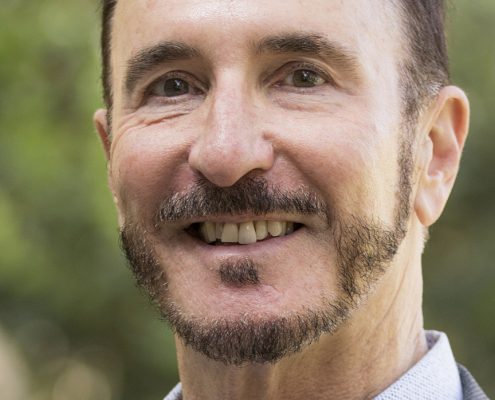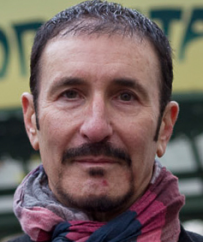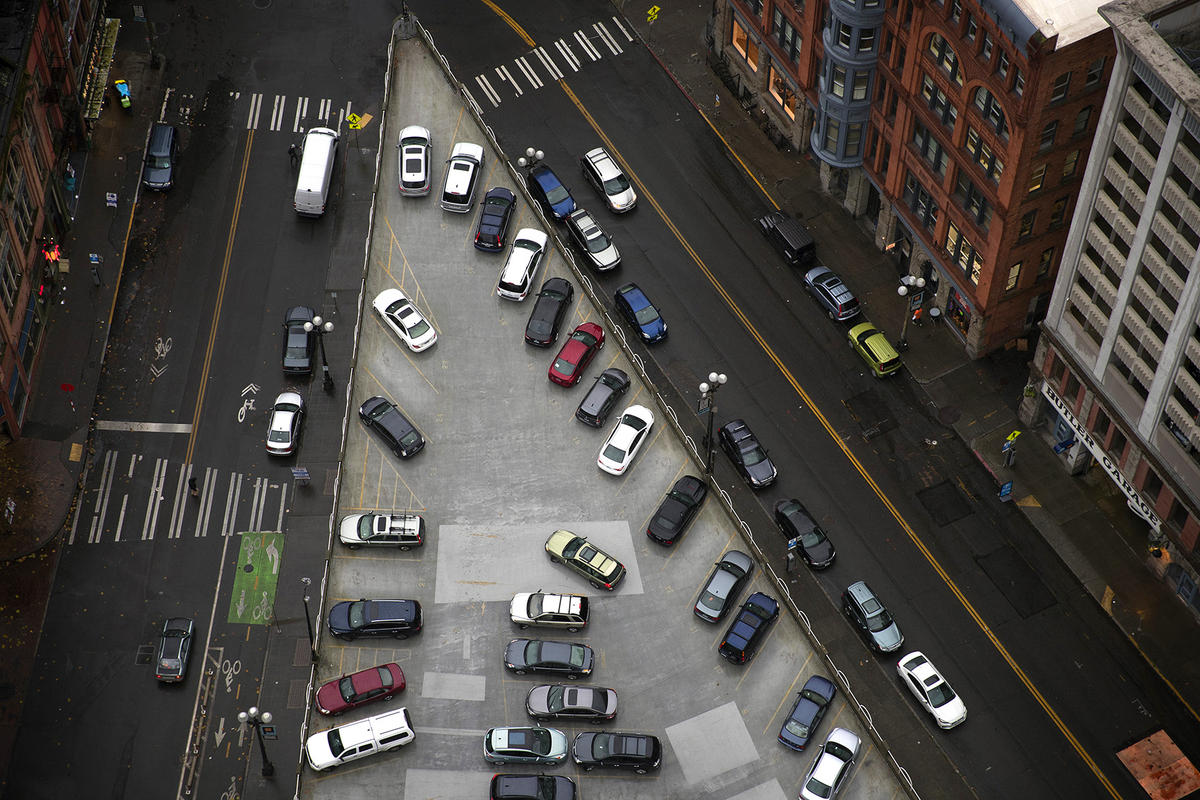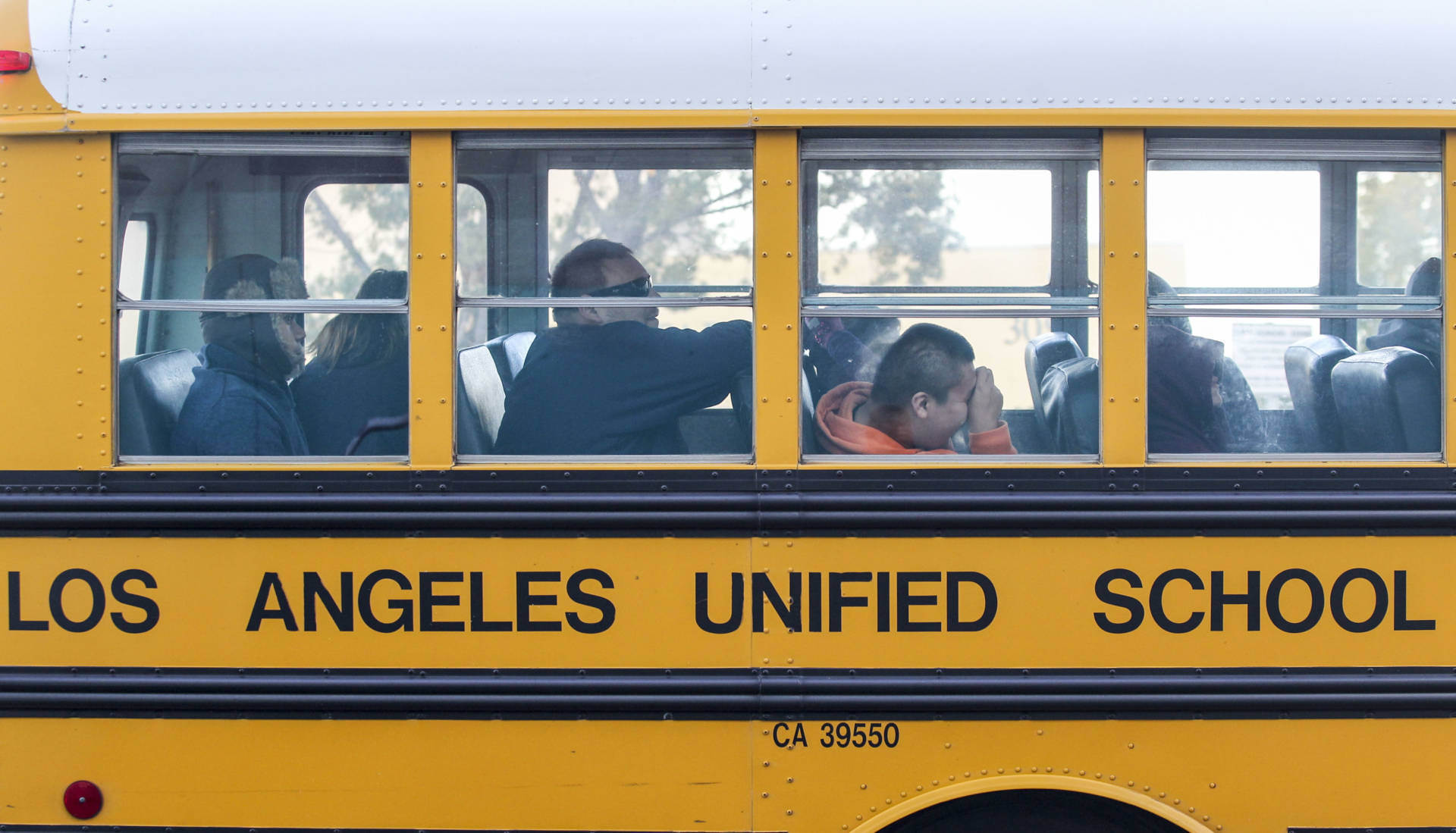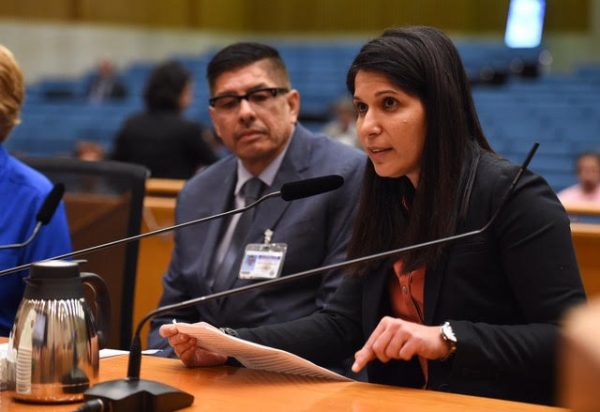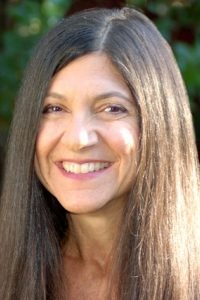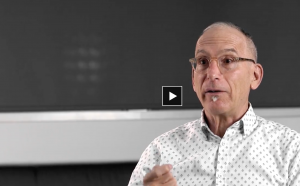Why Bay Area is epicenter of California’s housing crisis | Bay Area News Group
The key question for California is, “How do you manage the effects of success?” said Michael Storper, an economic geographer at UCLA Luskin Urban Planning. “At the moment we are a winner economy. California is amazing in how much it attracts high-wage, high-skill industries. Who wouldn’t want to be like that?” At the same time, he said, how do you preserve housing for the majority of residents who don’t command high salaries? Or find a way to pay them more?
Once L.A.’s hottest mall, the Westside Pavilion is dying, and shoppers are bummed | Los Angeles Times
In a recent article about the upcoming transition, due to financial decline, of the Westside Pavilion from a shopping mall to office space, Zev Yaroslavsky, director of the Los Angeles Initiative at UCLA Luskin, and Evelyn Blumenberg, professor of urban planning at UCLA Luskin, joined the conversation. “It’s an area that is accessible by public transit, and so there’s an assumption that it could lead to a thriving community and be easy access to markets and potential employees,” said Blumenberg about the Pavilion’s location. Yaroslavsky recounted his memories of the controversy surrounding the opening of the mall juxtaposed with the current disappointment of locals over the mall’s closure.
California’s housing conundrum | NPR
In a recent NPR podcast called “The Indicator: From Planet Money,” Paavo Monkkonen, vice chair of urban planning and associate professor of urban planning and public policy at UCLA Luskin, discussed California’s housing crisis and roadblocks to alleviating the situation. “Local zoning laws don’t allow for certain kinds of buildings like apartment complexes in certain areas … that means housing prices and rent stay high,” said Monkonnen about one of the root causes of the housing crisis. He explained that the restriction on development in high-growth areas reverberates especially throughout Los Angeles in the form of underutilized public transportation stops, uneven traffic dispersion and segregation by wealth.
Metro wants to end free rides for clean-air vehicles in toll lanes | Los Angeles Times
In a recent piece on L.A. Metro ending the toll-free incentive for drivers of clean-air vehicles, J.R. DeShazo, chair of UCLA Luskin Public Policy and director of the Luskin Center for Innovation, commented on this possible change. “Most of the population doesn’t know anything about electric vehicles. For them to see signs in the toll lanes that allow these cars … is beneficial for the state,” said Deshazo in defense of the current policy. He emphasized that the free access to toll lanes is the biggest incentive for many Californians to buy zero-emissions vehicles.
UCLA’s Michael Storper on squaring urbanism and density | The Planning Report
As one of the most cited social scientists in the world, Michael Storper, director of global public affairs and distinguished professor of urban planning at UCLA Luskin, recently participated in a Q&A with The Planning Report. “Without inclusiveness policies, the more density you create ̶ especially linked to transit ̶ the more displacement you’ll get,” said Storper on the importance of both inclusiveness and increased density in preventing local displacement caused by unaffordable housing prices. The conversation covered Storper’s recent research, Los Angeles’ and San Francisco’s regional economies, and other relevant issues in urban planning and economics.
Los Angeles could fast-track Elon Musk’s first tunnel project in West L.A. | Los Angeles Times
“I never in my wildest dreams expected that anyone would propose to use this exemption for this project,” said Juan Matute, lecturer of urban planning at UCLA Luskin, in a recent piece on the debate around fast-tracking Elon Musk’s first tunnel project in Los Angeles. This exemption allows for a construction project to forego an environmental impact report if it can be built on less than five acres of land. Matute, who is associate director of the UCLA Lewis Center and the Institute of Transportation Studies, added that the public plans of Musk’s Boring Company’s tunnel plans leave their use of the environmental exemption more challengeable in court.
The ghettoization of black Americans hasn’t been reversed | The Washington Post
In a recent op-ed on the history and current state of segregation between African Americans and whites, a paper co-authored by Michael Lens, assistant professor of urban planning and public policy at UCLA Luskin, and Paavo Monkkonen, associate professor of urban planning at UCLA Luskin, was referenced. Lens’ and Monkkonen’s research suggests that state government intervention could offset local interest group pressure that plays a role in persistent housing segregation by class and race.
Tens of millions of Americans are struggling to get off antidepressants ̶ and going to extreme lengths to quit | Daily Mail
“Drugs are presumed to be things that people need and, generally, funding [entities] are not interested as a rule in the darker side of the effect of drugs,” said UCLA Luskin Professor David Cohen, who holds the Marjorie Crump Chair of Social Welfare, in a recent piece on the millions trying to lessen or eliminate their use of antidepressants and the struggles they face with withdrawal symptoms. Cohen concluded, “We just have to pay more attention to the stories people tell… and pay good, scientific, clinical attention” to properly approach the struggles these patients face.
Would a downtown toll unfairly impact the poor? | KUOW
In a recent op-ed piece, Michael Manville, assistant professor of urban planning at UCLA Luskin, argues against the notion that adding a toll enroute to downtown Los Angeles would unfairly burden poorer individuals. Manville writes, “Toll revenue can offset costs for low-income drivers. This is how we help low-income people afford other forms of public priced infrastructure.” He defends the proposed toll as a proven way of reducing congestion in major cities around the world.
Brain abnormalities found in 4- and 5-year-olds with ADHD, researchers say | The Washington Post
In a recent piece on the first comprehensive imaging study of ADHD in preschoolers, UCLA Luskin Professor David Cohen, who holds the Marjorie Crump Chair of Social Welfare, weighed in on the implications of the discovery of an association between preschoolers with less gray matter volume in the brain and being diagnosed with ADHD. Cohen cited that children in the United States are treated far more commonly for ADHD than in the rest of the world. He concludes, “Findings from brain scans can’t begin to explain this.”
UCLA Luskin research showcased in NJJN newsletter | National Juvenile Justice Network
The National Juvenile Justice Network (NJJN) showcased a study co-authored by Laura Abrams, professor and chair of UCLA Luskin Social Welfare, in its most recent newsletter. The study focused on health data from over 14,000 adult participants and aimed to test whether incarceration during adolescence is linked to health issues as an adult. The results of this study include a significant negative difference between adults based on whether they have been incarcerated as a child. These measures of poor health include increased rates of mental and physical health problems for adults with a history of juvenile detention.
How California car culture killed the promise of a 20-minute commute | KPCC
In a recent KPCC piece on the history of the Southern California freeway system, Brian Taylor, professor of urban planning and director of the Institute of Transportation Studies at UCLA Luskin, weighed in. “California was the right place, but it was also the right time,” said Taylor of the 1940s inception of a highway system that has since grown to connect 50,000 miles of California. Regarding the severe traffic woes on these freeways, especially in Los Angeles, Taylor noted that the impressive freeway system helped drive growth, commerce and development in the city, and congestion is a natural byproduct of that success.
“It’s very hard to orchestrate the kind of bipartisan coalitions that one could imagine forming even in an election year,” said Mark A. Peterson, professor of public policy at UCLA Luskin, in a recent article about the struggles that President Donald Trump will face trying to pass major pieces of legislation leading up to the midterm elections later this year. Peterson concluded that, depending on how major is defined, the recent spending bill will the last significant bill passed in 2018 because of the current political climate.
An LA school district paid for thousands of students to take the SAT | Study Breaks
Meredith Phillips, assistant professor of public policy at UCLA Luskin, recently was quoted in a piece about the Los Angeles Unified School District (LAUSD) trying to reduce the financial barriers between poorer students and higher education. Phillips, who co-directed the first comprehensive analysis of college enrollment of LAUSD graduates in 2017, said, “Students that finish with stronger grades are much more likely to [go to] college.” LAUSD district officials feel that by making the SAT a real possibility for more students, they can make the prospect of attending college a feasible goal for these students.
As Trump visits border, Latino voters are watching and biding their time | Yahoo Finance
“So what will the presence of a president like Trump do? Latinos will turn out in higher numbers than people expect — and that will make a difference in at least some of these races,” said Gary Segura, dean of UCLA Luskin, in a recent piece about President Donald Trump’s visit to California and the president’s overall effect on the Latino vote in state elections. Citing a recent report out of UCLA that concluded that 79 percent of Latinos voted for Clinton, which was 9 percent greater than for Obama in 2012, Segura continued, “The real story is that Latino turnout was up in basically every jurisdiction in the U.S … Those extra nine percentage points are obviously a reaction to Trump.”
Enough is Enough: Social Workers and the Epidemic of Gun Violence | National Association of Social Workers
In an op-ed for the California news page of the association’s website, Laura Abrams, professor and chair of UCLA Luskin Social Welfare, writes about the recent mass shooting in Parkland, Florida, in which 17 people were killed. Social work educators “know that mental health problems are not necessarily preventable, and that even the best, most carefully delivered interventions won’t prevent access to firearms or wipe away the possibility of additional mental health challenges in the future. Mental health and well-being is always a goal for our profession, but is not the solution to gun violence. And when we address a problem with the wrong solution, we will always come up short.”
California’s Love for Cars is Fueling Its Housing Crisis | Bloomberg View
“Removing parking requirements doesn’t remove the problem (buyers might still want parking), but it does remove the one-size-fits-all solution,” Micheal Manville, UCLA Urban Planning professor, writes. These strict parking requirements mandate developers to build at least two parking spots per apartment unit. This can cost anywhere from $52,000 to $70,000, depending on where the spot is located, which is added to the overall cost of the apartment unit. This has caused many individuals in the housing market in California to be squeezed out due to high costs. California Senator Scott Wiener, in San Fransisco, has introduced a bill that would exempt parking requirements for developers in close proximity to any major transit line or bus stop, which could be the solution California needs.
UCLA report highlights ‘disturbing, sobering’ inequalities in South Los Angeles | My News LA
“This report is a sobering snapshot of the inequalities that have persisted in South Los Angeles 50 years since the 1968 report,” said Paul Ong, director of the Center for Neighborhood Knowledge (CNK) and professor emeritus of urban planning and social welfare at UCLA Luskin, in a recent piece about CNK’s report on deepening socioeconomic inequality in South L.A. The report found that South L.A. workers make 60 cents on the dollar, down from 80 cents, compared to the average L.A. County worker, while the gaps in standardized testing, home ownership and private education have also been widening over the past 50 years.
Guns kill kids in cities, too | Scientific American
“You have to address the question of social and economic inequality, and green space alone is not going to fix that,” said Mark Kaplan, professor of social welfare at UCLA Luskin, in a recent article about the connection between added “green space” and a potential reduction in violence in urban neighborhoods. Although Kaplan did not dispute that a greener and cleaner neighborhood could help create a sense of identity and ownership in these localities, he added that any major reduction in urban gun assaults is unlikely without increased regulation of the guns used in that violence.
Infrastructure spending not transformative for developed U.S. | newsmax
Martin Wachs, distinguished professor emeritus of urban planning at UCLA Luskin, had his co-authored work “Not Everything Is Broken” referenced in a recent George Will piece on the current and future states of infrastructure and infrastructure spending. The piece warns against “rhetorical extravagance” when it comes to the fiscal needs of the United States’ infrastructure, and uses Wachs’ work to reinforce this position.
2018’s best state capitals to live in | WalletHub
Michael Storper, distinguished professor of regional and international development in urban planning and director of Global Public Affairs at UCLA Luskin, weighed in on a conversation about the economic, social and political pros and cons of living in a state capital in a recent piece ranking the state capitals. “Political capitals do have an economic specialization: the politics industry… the bigger the politics industry in the state, the bigger the local impact,” said Storper of the wide-reaching effects of a state capitol building on a city. He noted the important differences in characteristics between political and economic capitals in states, which have complex effects on the state as a whole.
Op-ed: Will L.A. County step up & lead nation in helping LGBTQ kids in foster care system? | witnessLA
Khush Cooper, lecturer in social welfare at UCLA Luskin, recently wrote a piece about the issues experienced by LGBTQ children in the foster system and offered possible solutions L.A. County could take to help rectify these problems. “We have a unique opportunity in front of us to lead the nation in developing and expanding cutting-edge policies and programs for LGBTQ youth,” wrote Cooper of the ability of Los Angeles to positively effect the outcomes of 1 in 5 children in the foster system who identify as LGBTQ.
Medicine in America | Watson Institute
In a podcast about the political and practical difficulties in improving the evidence base of U.S. medicine, Mark A. Peterson, professor of public policy at UCLA Luskin and an expert on evidence-based policymaking, weighed in. “I think people, including politicians, are worried that a movement too far in this direction would be a cookie-cutter approach to medicine, and it really worries people that they will be denied [treatment].” Peterson said the fear of being denied treatment because of economics leads to a “paralysis around this whole issue, around generating more information and having mechanisms for physicians to use that information more effectively in their work.” Peterson also was recently part of a panel discussion about unprecedented political power in the United States, which can be heard on The Scholars’ Circle.
California Today | New York Times
In a recent e-newsletter piece involving commentary by President Donald Trump about MS-13, Jorja Leap, adjunct professor of social welfare at UCLA Luskin, sheds light on Trump’s claim that the gang was founded in Central America and brought to the United States through immigration. Explaining how the gang was actually formed in the poverty-stricken neighborhoods of Central Los Angeles in the 1980s, Leap said, “They go where the population is vulnerable … they stick to the communities where they can be intimate, where they can abuse and blindside people.” Leap went on to detail how the clout of MS-13 and similar gangs is dispersing because of collaborations between law enforcement, city hall and activists with an emphasis on rehabilitation.
Affiliate spotlight: Manisha Shah on her research on adolescent sexual and reproductive health | J-PAL
Manisha Shah, vice chair and associate professor of public policy at UCLA Luskin, recently sat down for a conversation about her research and career. “I am particularly excited about a randomized evaluation in Tanzania. We are working with adolescents to understand how we might improve female sexual and reproductive health (SRH) outcome,” said Shah when asked about her current research. Other topics of conversation include the source of Shah’s interest in developmental economics and early career advice for researchers.
Why is L.A. expanding transit ̶ and losing riders? | CityLab
“[An] exploding level of car ownership is incompatible with transit ridership,” said Michael Manville, assistant professor of urban planning at UCLA Luskin, about a recent UCLA Institute of Transportation Studies (ITS) report that L.A. public transit is losing ridership in part because of a significant increase in car ownership in Southern California. The report was co-authored by Manville; Brian D. Taylor, professor of urban planning and director of UCLA ITS; and Evelyn Blumenberg, professor of urban planning at UCLA Luskin. It cites gentrification as a possible contributor to the trend. The study has also been cited in recent stories about transit ridership by other news media, including the Los Angeles Times, the Los Angeles Daily News, LA Curbed and KCRW.
Were retail jobs always low wage, with few benefits? | Marketplace
In a recent piece about low-wage retail jobs, Chris Tilly, professor of urban planning at UCLA Luskin, weighed in on the current expectations of these employees. “You just have more and more retailers saying we want 24/7 availability,” said Tilly, highlighting how prices in department stores, since the 1970s, have been trending down, as have employee wages that demand a much greater hourly availability.
L.A. County set to build its first new freeway in 25 years, despite many misgivings | Los Angeles Times
“The freeway builder’s dilemma: Construction in advance of anticipated demand is a risky proposition, and investors want to see immediate returns,” explained Brian Taylor, professor of urban planning and director of the Institute of Transportation Studies at UCLA Luskin, in a recent article about California Department of Transportation’s $8-billion plan to build a freeway linking State Route 14 and Interstate 15. The project is a response to predicted traffic congestion between L.A. and San Bernardino counties while also lessening gridlock on some Los Angeles-area roads.
New research shows suicides spiked following Robin Williams’ death | Mother Jones
“There is some evidence for imitative suicidal behaviors occurring in response to the reporting of suicides in the media,” said Mark Kaplan, professor of social welfare at UCLA Luskin, in a recent story about a study relating Robin Williams’ death to a rise in suicide rates in the United States. Kaplan added that this study is consistent with current academic literature about the effects of media coverage of high-profile celebrity suicides on the national suicide rate. “You don’t know who out there is vulnerable. You don’t know how they’re going to read those headlines.”
Chris Tilly, professor of urban planning at UCLA Luskin, co-authored a piece for the French newspaper about the possible problems with and consequences of automation for supermarkets. “It is more difficult to predict that the complete automation of fresh food aisles is feasible or even desirable for the consumer,” wrote Tilly of the difficulty of automating the current labor-intensive system of labeling, stocking and selling fresh produce. Tilly concludes that automation in supermarkets depends largely on cost, and it will be the customers who should “worry about their real margins of choice in the future.”
Buy, scrape, build, repeat | The Argonaut
“Places like New York … are famous for [their] sidewalk ballet. And I think in old parts of Venice that are denser, we do see a little more street life, social connections, use of public spaces… probably this change in housing type will reduce it further,” said Vinit Mukhija, professor and chair of urban planning at UCLA Luskin, for a recent article about the rise of “spec housing” in Venice. One of Mukhija’s proposed solutions to these problems is the cultivation of more multi-family properties in Venice to increase population density and revitalize the social fabric of the neighborhood.
‘The future of work’ and ‘Cisco Pinedo’ | KCET
Mark S. Kaplan, professor of social welfare at UCLA Luskin, is one of the main voices in KCET’s recent report on the rise of the “gig economy” and its effect on income inequality. This segment first aired on the station’s “SoCal Connected” program on Jan. 30, 2018, and is now available to view online.
In clash between California and Trump, it’s one America versus another | The New York Times
“It seems like every day brings a new point of contention between two very different types of leadership,” said Jim Newton, lecturer of public policy at UCLA Luskin, of the contentious relationship between California and the Trump administration. In a recent op-ed citing the political quarrels over immigration, taxation and drug enforcement policy, the article further illustrates California as a large nation-state with an opposite social and political ideology and worldview to that of the White House. Due to this difference, Californian politicians have acted as bulwarks against the administration’s attempts to advance its agenda in the Golden State.
Moving study: Connecticut is a top state to leave | San Francisco Chronicle
Michael Stoll, professor of public policy and urban planning at UCLA Luskin, is quoted in an Associated Press story about a new study by moving company United Van Lines showing that Americans are still heading west, while parts of the Northeast, especially Connecticut, and the Midwest are losing people. “This year’s data reflects longer-term trends of movement to the western and southern states, especially to those where housing costs are relatively lower, climates are more temperate and job growth has been at or above the national average, among other factors,” Stoll said.
Women share their #MeToo experiences on Metro — and offer solutions | Washington Post
The Washington Post takes another look at violence and harassment that women face on public transportation and cites a previous op-ed by Anastasia Loukaitou-Sideris, professor of urban planning at UCLA Luskin.









